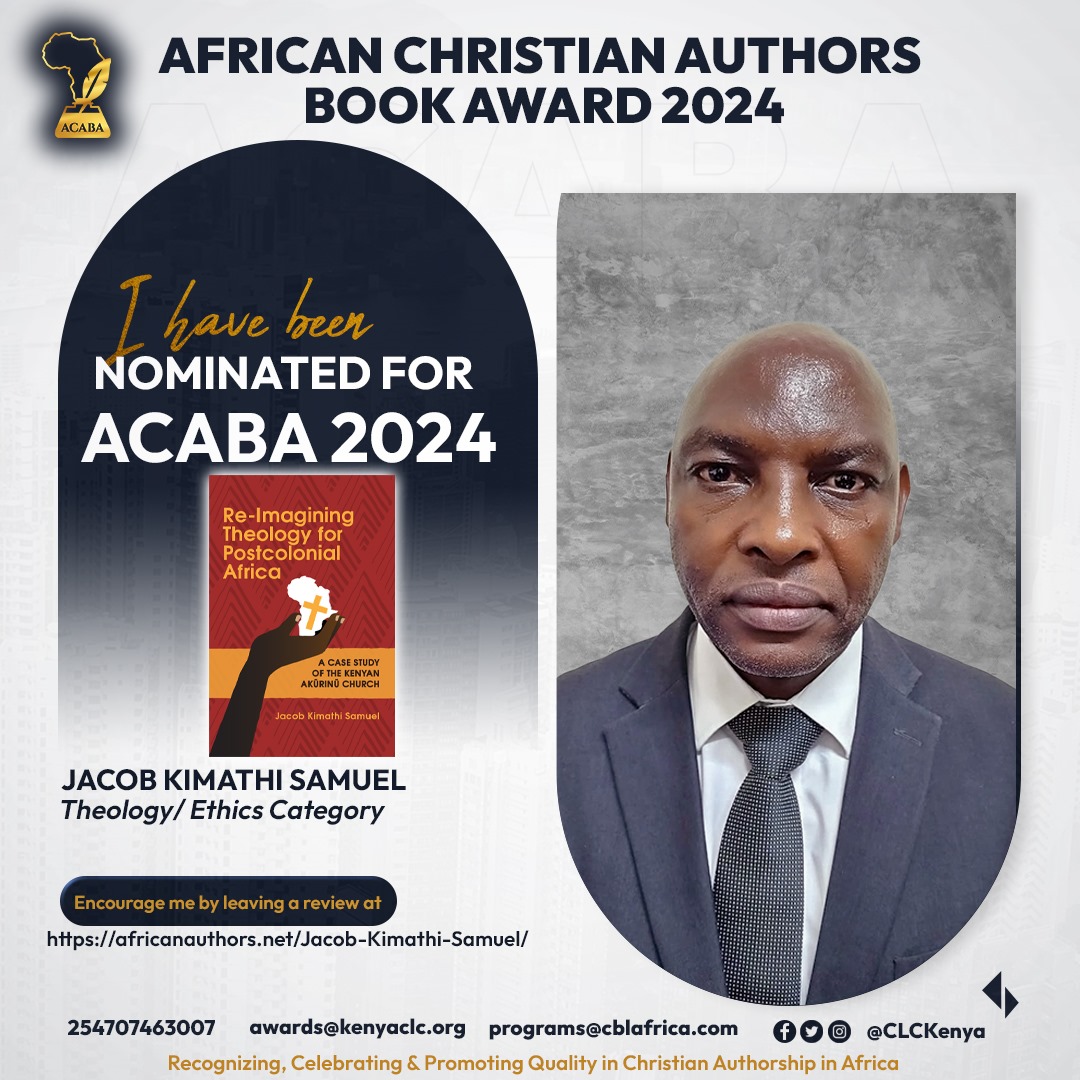Jacob Kimathi is a pastor with Christ is The Answer Ministries (CITAM), currently serving as the senior pastor of CITAM Naivasha. He is an ordained minister and has been a pastor for 22 years. He is married to Florence Kimathi. They have 2 children, Neema and Keith. The journey to the current book, “Re-Imagining Theology for Post-Colonial Africa”, began in years between 2012 and 2017 when I was a PhD student. My majors were Theology, Culture, and Development.
While doing development courses, I was bothered by the underdevelopment of Africa. This bother became my preoccupation. I took a keen interest in the courses on culture especially on the assault that the African culture has suffered under missionary Christianity and colonial civilization. My intrigue centered on one question; is there a nexus between the underdevelopment of Africa and the western denigrating of the African cultures?
This thinking guided my dissertation. In my mind, I was no longer writing a dissertation henceforth. I was writing a story. It was not a surprise when upon graduation, a publisher, Borderless Press from Pennslyvania, got interested in the work. They published it in 2019. We had a great occasion to launch the book on 1st July 2019 at Serena Hotel, Nairobi.
This book is about the nexus between development and people’s culture. The author demonstrates that once African culture was demonized and considered irrelevant for development and a necessary ally in the evangelization of Africa. This pre-meditated and well-thought-out plan by our Western benefactors, alienated Africans from their souls thereby hating themselves, and considering themselves useless – with nothing to offer for their development agenda let alone for any other people.
This left behind a trail of an African who has no confidence in himself but one who is obligated to play catch up on other people’s agenda. The book contends that for any meaningful development, Africa must first recover her personhood by appreciating her God-given culture, a fallen culture yes, but not completely devoid of God’s reflexivity i.e. God’s image and work of redemption in man.
The book demonstrates that since the Akurinu Church has a dynamic Theological foundation that is not founded on the missionary Church, but on the Agikuyu culture and the Bible, then God is at home with African culture which therefore, the missionary Christianity should have animated and enlisted in the quest for African development and evangelization, and not denigrated it as it was the case.
The book depicts the Akurinu Church as a church that is at home with her culture and a test case of how a Church movement can develop her contextual theology and a faith that can bring her faith to bear and address all aspects of culture and by so doing bring holistic material development that does not relativize God as it has happened in the West. The Akurinu Church theology demonstrates that contextual theologies are possible. All such theologies are critical in the ongoing search for global theology.



